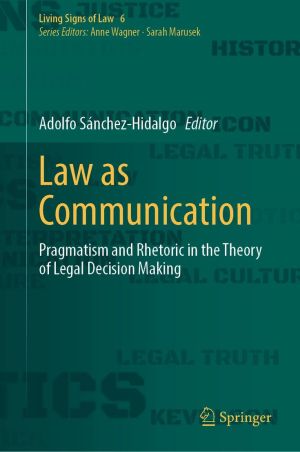
The Communicational Theory of Law (CTL) is a successful synthesis of the hermeneutic and analytical postulates, proceeding under the assumption that Law is the heritage of jurists and can be enriched by a rational and systematic reconstruction of the legal order. CTL offers an original perspective on the classic tension between normativity and institutionality, between Legal Theory and Legal Sociology, helping readers rediscover the value of Theory of Law in terms of explaining and advancing a range of legal functions.
It wouldn’t be saying too much to claim that through CTL, the contributions of the European philosophy of law from the 19th and 20th centuries (jurisprudence of concepts, legal sociology, legal positivism, institutionalism, etc.) can be reclaimed and now coordinated from a communicational and philosophy of language perspective, offering us a complete and useful Theory of Law. CTL does not avoid the problem of the idea of justice; rather, it confronts it by distinguishing between the Theory of Justice and ambital justice. As such, readers are equipped to verify the originality of the Theory of Legal Decision in the CTL framework and, thus, will find new tools for critically assessing the performance of courts and public authorities.
This book details the epistemological presuppositions on which CTL is built, but also offers new lines of critical development, which reflect CTL’s theoretical and philosophical potential. In the studies presented here, readers will find original answers to classic problems of the Theory of Law, together with examples of CTL’s practical application to the great challenges of our time, such as interculturalism, legal AI, populist demagogy, the transparency of public powers, etc. – all without forgetting the challenges of the future of Law.